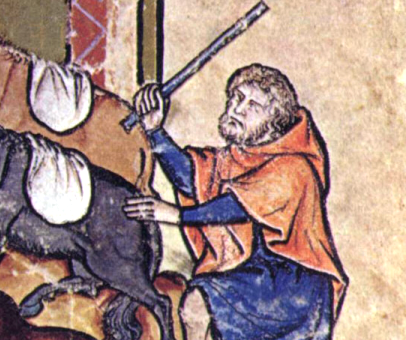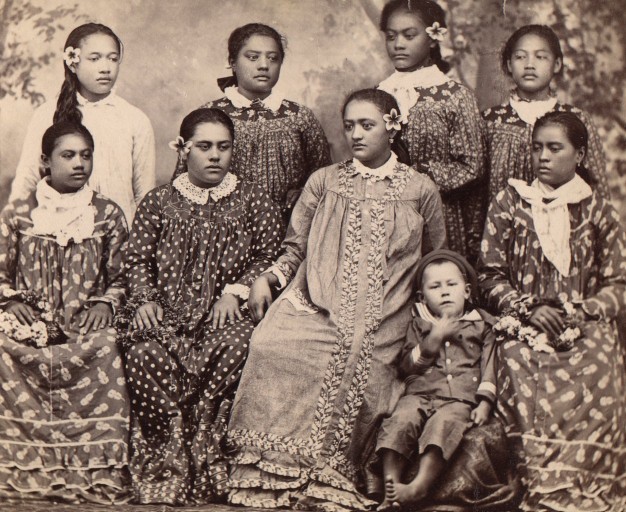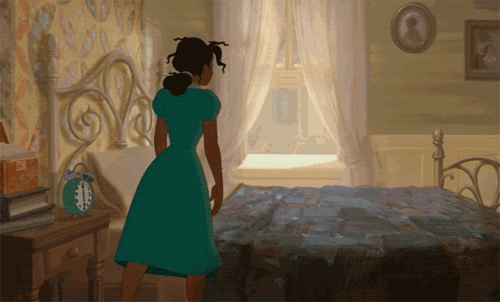chapter15.4--handout
Background Information
Cape 斗篷/披风
今天的内容里提到Romero引逗公牛的时候,用到的一个物件是cape(I had her watch how Romero took the bull away from a fallen horse with his cape, and how he held him with the cape and turned him...)这里的cape指斗牛士用来引逗公牛的斗篷(一般其中一面是品红色,另一面是黄色;到了斗牛后面的进程,斗篷会换成大红布muleta).

但在我们的日常生活里,斗篷(cape)主要是指一种无袖的外套装饰,松松地从后背搭到手臂和胸脯,一般还会在脖子上系紧(a sleeveless outer garment, which drapes the wearer's back, arms and chest, and fastens at the neck), 相当于是topcoat(外套). 斗篷在中世纪的欧洲一度非常流行,而且还是带兜帽(hood)的那种。

罗马天主教的神职人员(Roman Catholic clergyman)也兴穿斗篷,但在他们身上,斗篷就有了更尊贵的名称——Ferraiolone/Ferraiolo(神职披风),一般在非宗教礼仪的正式场合出现。它可以穿在肩膀上的,或者用一根与披风同等颜色的细布条打成蝴蝶结,将披风挂在自己的背后,长度到脚踝;这种披风没有任何的花纹装饰,是罗马公民的日常服饰之一,最初只到膝盖。

一件Ferraiolo是什么颜色,这是由佩戴这披风的教会内神职人员等级而决定的,在俗神父一般穿着纯黑色的Ferraiolo,紫色的则是由教皇陛下的首席书记官或教区主教穿,猩红色真丝水波绸的则是枢机主教穿。水波绸的Ferraiolo也表示穿戴者是教廷大使或直接听命于教皇,因此Ferraiolo的制作用料与颜色都非常严格。
斗篷也经常在社交的正式场合出现。比如名媛淑女参加晚宴的时候,一般会在晚礼服外面披一件斗篷,以免蹭坏了用料讲究的晚礼服(the fine fabrics of the evening wear).

经常和cape弄混的是cloak, 两者的区别主要在于,cape是指上身斗篷(a shorter garment),而cloak是全身的(a full-length garment). 但其实大家一般都用这两个词来指全身斗篷。
另外cape还可以指雨衣外套(a long and roomy protective garment worn to keep one dry in the rain).

Vocabulary
contortion
n. 扭曲,变形;扭曲的姿势,动作(a twisted position or movement that looks surprising or strange)
原文:Romero never made any contortions, always it was straight and pure and natural in line.
罗梅罗从来不故意扭摆身躯,他的动作总是那么直截了当、干净利落、从容自然。
💧contortion 还可以引申为“困难,周折”(可数名词),比如:He went through a series of amazing contortions to get Karen a work permit.
他费尽周折才为凯伦弄到了一张工作许可证。
suave
adj. 温文尔雅的;自信而世故的(polite, confident, and relaxed, sometimes in an insincere way)
原文:...and how he held him with the cape and turned him, smoothly and suavely...
怎样用斗篷把牛稳住,然后平稳而优雅地逗引牛转过身去。
💧suavely 在这里形容Romero的动作非常优雅温和。但suave在形容一个人的品性的时候一般指这个人很圆滑精明,比如:He is a suave, cool, and cultured man.
他是一个圆滑、冷酷、有教养的人。
Crush Your Problems

"Here come the gentry," Bill said.
“咱们的同伙来了。”比尔说。
💧表达精讲
gentry 来源于法语,和gentleman相近,指“上层社会人士,绅士阶层”(people belonging to a high social class). 在狂欢节之前,几个人物彼此之间的称呼是chap “家伙,伙计”,但是在狂欢节上,他们开始互称gent “男士,先生”(比如Bill跟当地人说话的时候把Jake称作gent,以及这里Brett看到Jake和Bill叫他们gents). 暗示了他们依然保持着在巴黎生活养成的尊贵心态,同时也讽刺了他们的身份地位和他们在狂欢节上恣意放荡的行为表现是冲突的。


"Let up on that, Mike. I said I was sorry I said it."
“别提了,迈克。我说过,我说这话都后悔了。”
💧表达精讲
let up 有“停止,减弱”(to cease or become less severe)的意思,let up on也就是“对……没那么狠(严厉)”(to become less forceful with sb), 比如:They are not going to let up on us in the second half, so we better be ready to battle with them.(他们绝不会在下半场对我们有丝毫让步,所以我们必须全力以赴。)
在比赛前,Cohn说自己唯一担心的就是会感觉无聊,结果他在看到马匹被公牛攻击的时候脸色变得铁青,所以他在这里央求Mike别再挖苦他了。


"He was, you know. He was positively green."
“他是这样,你们知道。他当时脸色铁青。”
💧表达精讲
positively 在这里是“绝对地”的意思,表示很肯定自己说的内容(to emphasize that you really mean what you are saying), 相当于definitely, literally. 比如:This is positively the last chance for the industry to establish such a system.( 这绝对是该行业建立此机制的最后一次机会。)


"He said Brett was a sadist," Mike said. "Brett's not a sadist. She's just a lovely, healthy wench."
“他说过勃莱特是个虐待狂。”迈克说。“勃莱特可不是个虐待狂。她只是个迷人的,健壮的姑娘。”
💧知识拓展
sadist 即“施虐狂”,指通过折磨他人或者其他残忍形容获得快感的人,相反的则是masochist “受虐狂”。sadist得名于法国一位有着变态心理的贵族“萨德侯爵”(Marquis de Sade); masochist则来自于一个名为Mzsoch的色情作家,他的作品也涉及虐恋情节。


"He said Brett was a sadist just because she has a good, healthy stomach."
“他说勃莱特是个虐待狂,只不过因为她承受能力很强。”
💧表达精讲
have a good, healthy stomach 不是指“肠胃好”或是“胃口好”,而是和have a strong stomach一样的意思,表示“(对于容易引起不适的东西)有很强的承受能力”(to be able to see or do things that are unpleasant without feeling sick or upset), 比如:Don’t go and see this film unless you have a strong stomach.(如果没有很强的承受力就不要去看这部电影。)


...so that it became more something that was going on with a definite end, and less of a spectacle with unexplained horrors.
这样才能看出点门道,才能琢磨出整个斗牛过程有一定的目的,并不仅仅是些不可名状的恐怖景象。
💧表达精讲
①with a definite end “有一定的目的”,end在这里表示aim, purpose. 有一句话说的是The ends justify the means. 也就是指“只要能达到目的,可以不择手段”。
②a spectacle with unexplained horrors “不可名状的恐怖景象”,spectacle可以表示“精彩的表演,壮观的景象”,也可以用来形容“不寻常的、不好的情景”(含贬义),比如the spectacle of drunken young men on the streets指“街上年轻醉汉的丑态”。还有一个表达make a spectacle of oneself “让自己出丑,出洋相”。


She saw how Romero avoided every brusque movement and saved his bulls for the last when he wanted them, not winded and discomposed but smoothly worn down.
她看出罗梅罗如何避免用任何粗鲁的动作,保存牛的体力,以便等到他需要的时候作最后一击,不让它们气喘吁吁、烦躁不安,而是使它们一点点地垮下来。
💧表达精讲
①brusque 指“唐突的,生硬粗鲁的”,一般用来形容说话的时候寡言无礼,比如:The doctor spoke in a brusque tone.(医生不客气地简单说了几个字。)
②not winded and discomposed but smoothly worn down 形容的是公牛“不是气喘吁吁的、烦躁不安的,而是一点点疲乏下来”;winded表示“〔因跑步或腹部被击打而〕呼吸困难的,喘不过气的”;discomposed相当于disturbed “心神不定”,compose oneself就是“使心情平静下来”的意思;smoothly形容“很平稳地,不疾不徐地”。


Romero had the old thing, the holding of his purity of line through the maximum of exposure, while he dominated the bull by making him realize he was unattainable, while he prepared him for the killing.
罗梅罗表演的是传统的技巧,就是通过身躯最大限度地暴露在牛面前来保持洗练的动作,他就是这样把牛控制住,使它觉得他是难以接近的,同时做好准备,给它以致命一击。
💧表达精讲
①purity of line “洗练的动作”,purity指Romero的动作很纯粹,没有任何虚与委蛇;line在这可以理解为“方法,方式”(a particular way of doing something), 比如:We were both thinking along the same lines (= in the same way ).(我们俩想法相同。)
②making him realize he was unattainable 需要分清楚代词所指代的对象,him是指the bull, 而he才是Romero. unattainable表示impossible to achieve, 比如unattainable ideal/dream/goal.
③while he prepared him for the killing 也是同样,he指Romero, him指the bull. 这句话可以理解为while Romero prepared to kill the bull.


"These bull-fights are hell on one," Brett said. "I'm limp as a rag."
“看斗牛真累人。”勃莱特说。“我全身软得像团棉花。”
💧表达精讲
limp as a rag 直译是“像抹布一样软塌塌的”,limp作名词可以指“跛行”,这里作形容词引申为“软弱无力的”,但是rag翻译成“抹布”在汉语里并不舒服,所以换成了我们更熟悉的“软得像团棉花”。
另外limp dishrag一般还可以用来指“办不成什么事的人”或者是“没有骨气的懦夫”(a totally helpless person; a cowardly and spineless person).
Content Analysis
这次在第二场斗牛赛上,对于Romero如何与公牛周旋搏斗有了更细致的描绘。Jake耐心地给Brett解释里面的门道,这让Brett对Romero愈加着迷钦佩,因为他的动作和气场都完全像一个真正的斗牛士,比如他的技巧和方法直接而纯粹——
💧Clue 1:The technique adpoted by Romero is direct and pure.
Evidence 1: She saw how close Romero always worked to the bull, and I pointed out to her the tricks the other bull-fighters used to make it look as though they were working closely.
她还看出罗梅罗老是在牛身边靠得那么近,我就给她指出别的斗牛士常常耍花招,来给人一种他们靠得很近的样子。
Evidence 2:Romero's bull-fighting gave real emotion, because he kept the absolute purity of line in his movements and always quietly and calmly let the horns pass him close each time.
罗梅罗的斗牛真正使人动情, 因为他的动作保持绝对洗练,每次总是沉着冷静地让牛角紧靠身边擦过去。
Romero从来不像其他斗牛士一样搞唬人的小把戏,所以只有他能真正在观众心里激起真正的情感(real emotion). 作者在塑造Romero这个角色的时候,其实也赋予了他很多在其他主角人物身上缺乏的特质,比如他的真诚(genuineness)和直接(directness)——体现在斗牛技法上。
同时和其他人物相比,他所从事的职业更加具有意义和价值——和牛对抗,而Jake和Cohn都是不满于自己的工作(Jake derives no particular satisfaction from being a journalist nor Cohn from being an author). 他们身上所缺乏的生活的真实感和热情在Romero斗牛的过程中可以说是得到了极致的体现,也正是这一点吸引了Brett("I believe, you know, that she's falling in love with this bullfighter chap," Mike said).
此外,这段精彩的描写其实也可以看作是海明威把斗牛和自己的写作相类比——
💧Clue 2: Hemingway compares the bullfighting to his writing.
Evidence 1:Romero never made any contortions, always it was straight and pure and natural in line.
罗梅罗从不故意扭摆身躯,他的动作总是那么直截了当、干净利落、从容自然。
Evidence 2:Brett saw how something that was beautiful done close to the bull was ridiculous if it were done a little way off.
勃莱特看出有些动作紧靠着牛做很优美,如果和牛稍微保持一点距离来做就很可笑。
line在这里可以理解为双关,line既可以表示“方式,方法”(way, method), 也可以表示“字句”(a line of written words). 因此作者在强调Romero的技法的同时也在暗指自己的写作也是这样简截了当、游刃自如,并没有多余的修辞或矫饰(rhetorical flourish).
对于Romero来说,这是掌控公牛最好的方法——最大限度地把自己暴露,不迂回躲避(through the maximum of exposure); 那么对于海明威而言,采取这种朴素直接的写作方法,则是为了让“主题”(subject)更加凸显,而不至于偏离了作品中心。大家可以再仔细读一遍这一段对于斗牛的描写,这些文字本身就是对海明威写作风格最好的诠释。
Today's Bonus
💧累瘫了 在写作中的花式表达
Brett看完斗牛比赛之后说自己简直累坏了,全身软得像团棉花/抹布一样(I'm limp as a rag). limp表示“软弱无力的”,在作家们的笔下还延伸出了不少比喻,比如:
Limp like cut vine-twig. —Robert Browning
(像被割下来的藤条)
Limp as bags of oats. —Elbert Hubbard
(像一袋燕麦)
Limp as a chewed rag. —Rudyard Kipling
(像被啃过的破布)
Limp as your grandma’s Mother Hubbard gown. —Wallace Irwin
(像祖母穿的哈伯德大妈装)

除了以上的比喻,还有以下词语也可以引申为表示累瘫软的状态:
1. dead beat
I'm beat 在口语里可以表示累坏了,在前面加上dead语气更重(dead可以理解为extremely, very),说明实在是精疲力竭了(exhausted).
Come and sit down – you must be dead beat.
过来坐下吧,你肯定累坏了。

2. bone-weary/breaking
这两个短语字面上意思是连骨头都累着了,或者是骨头都“断了”,其实也就是在指累到全身散架。
Volunteers all felt bone-weary after working for scores of hours.
工作了十几个小时,志愿者们都感到精疲力尽。
3. dead on one's feet
这个短语字面上好像是“死在自己的脚上”的意思,但它其实表示的是“累得快晕过去/失去意识了”(near to the point of collapse or losing consciousness). dead在这里表示tired to exhaustion(累到被掏空,整个人都像行尸走肉一样)。
Mom was in the kitchen all day and was dead on her feet.
妈妈在厨房忙活了一整天,都快累晕了。

另外这个表达还可以指某样事物依然在运作,但其实已经跟瘫痪了没区别(still functioning, but past the point of usefulness or productivity; as good as defeated).
The company has managed to remain open, but, truth be told, it's really been dead on its feet for the last year.
这家公司还在勉强维持营生,但说老实话,其实它在去年就已经无力回天了。
4. run out of steam
我们知道蒸汽机是靠蒸汽来驱动引擎产生动力的,那么当蒸汽越来越少甚至没有了的时候,引擎就失去了动力,自然就运转不起来了。所以run out of steam也可以用来比喻一个人累到一点精神气都没了。
If you've run out of steam, maybe it's your body trying to tell you something.
如果你失去动力,也许是你的身体试图告诉你什么。
